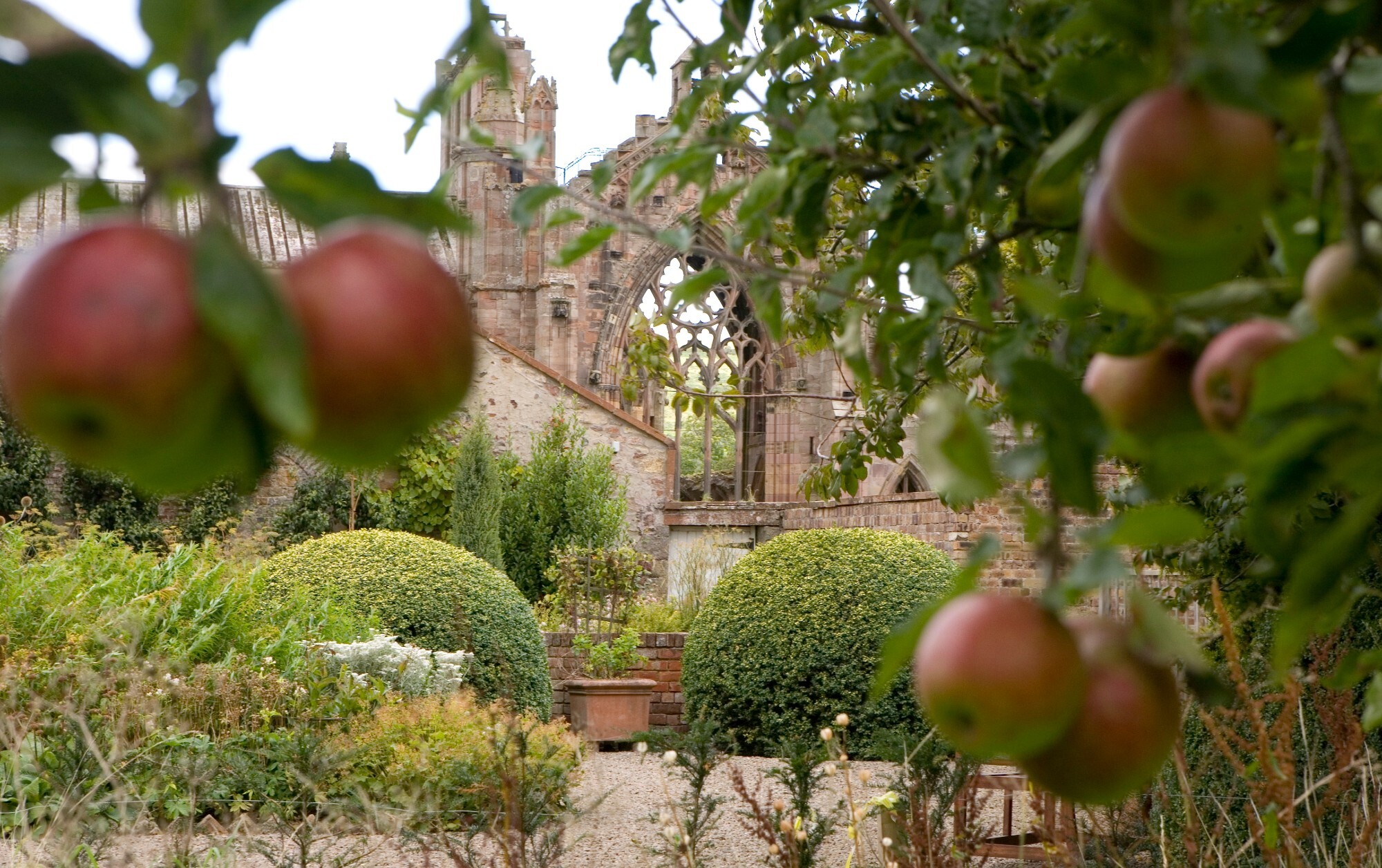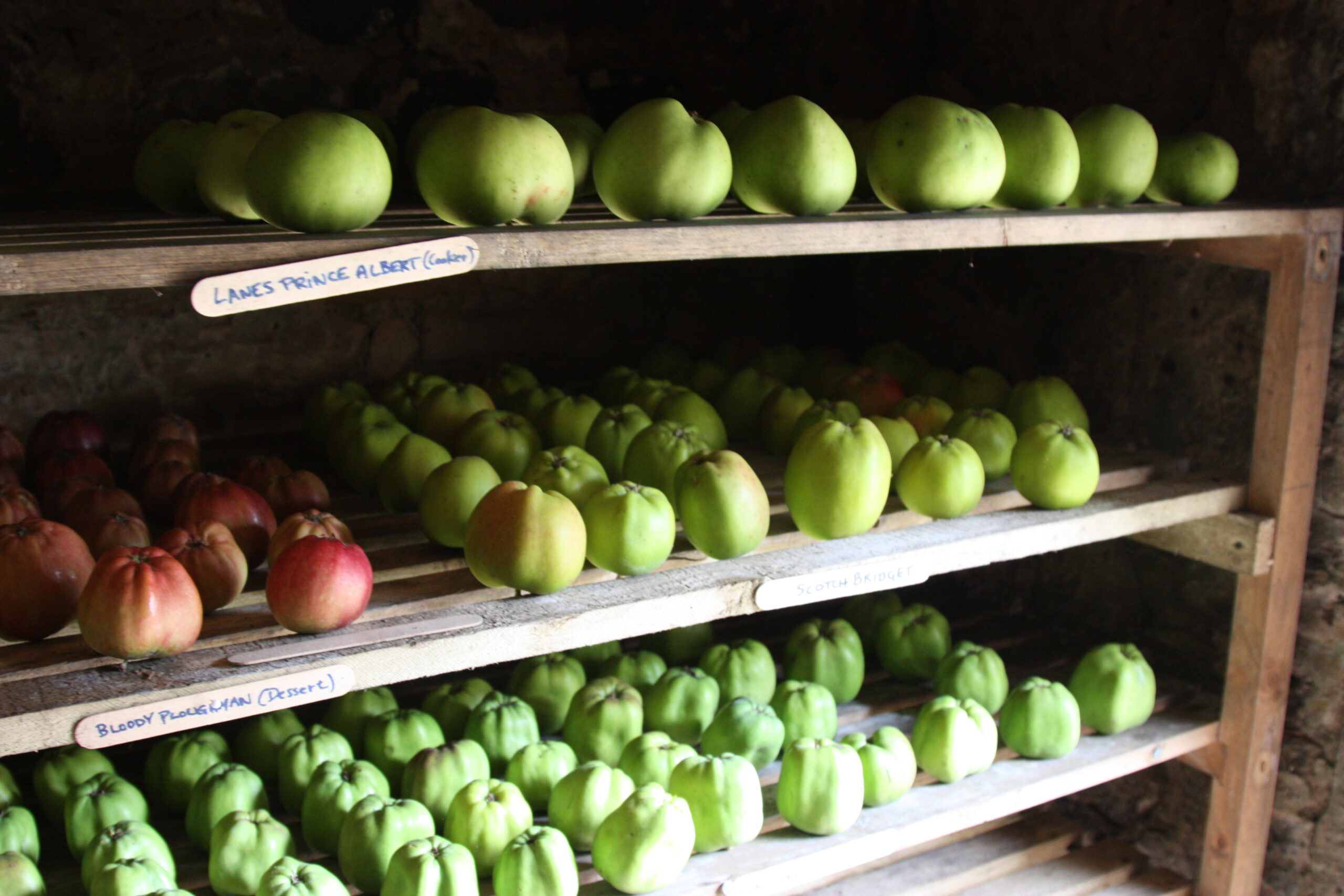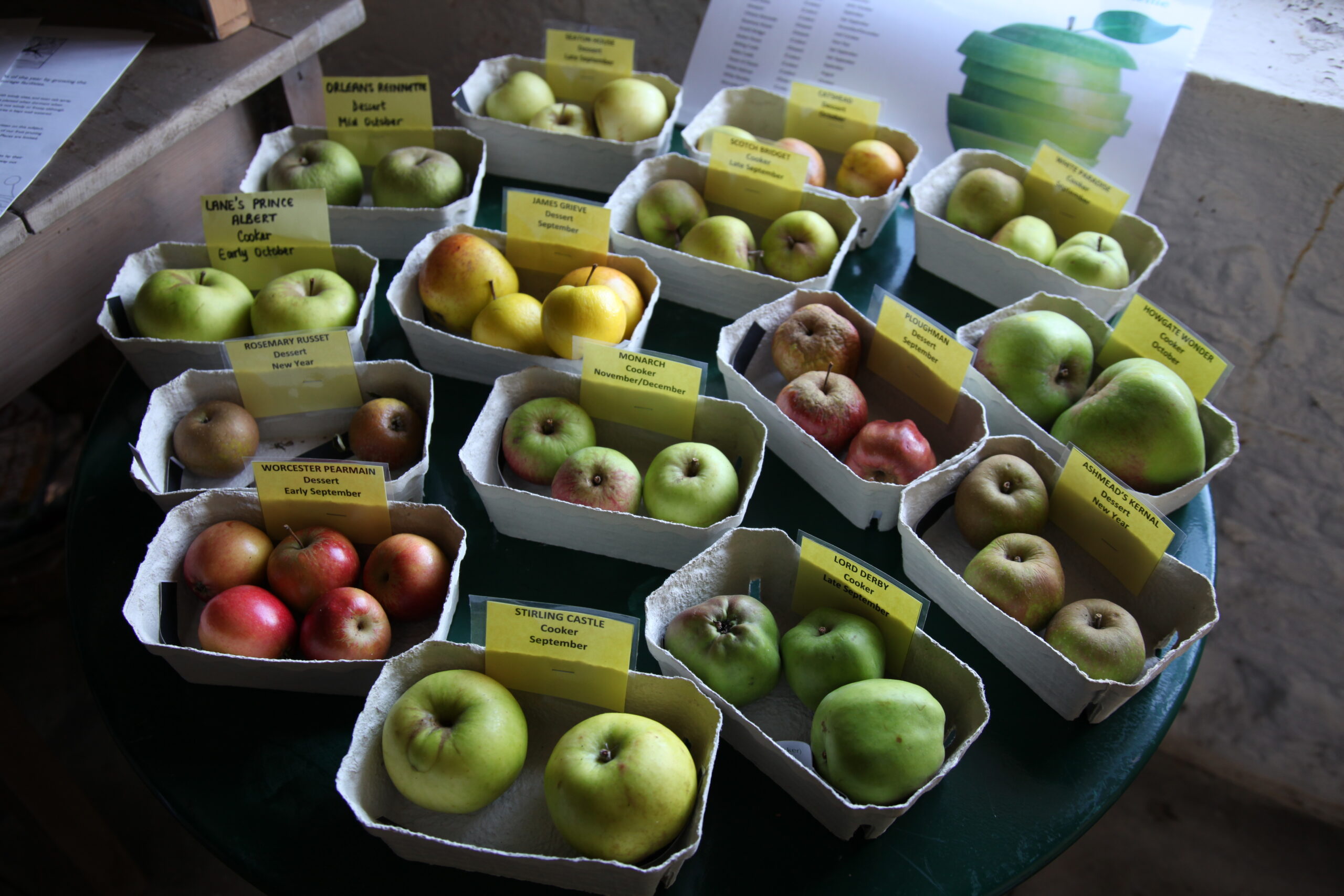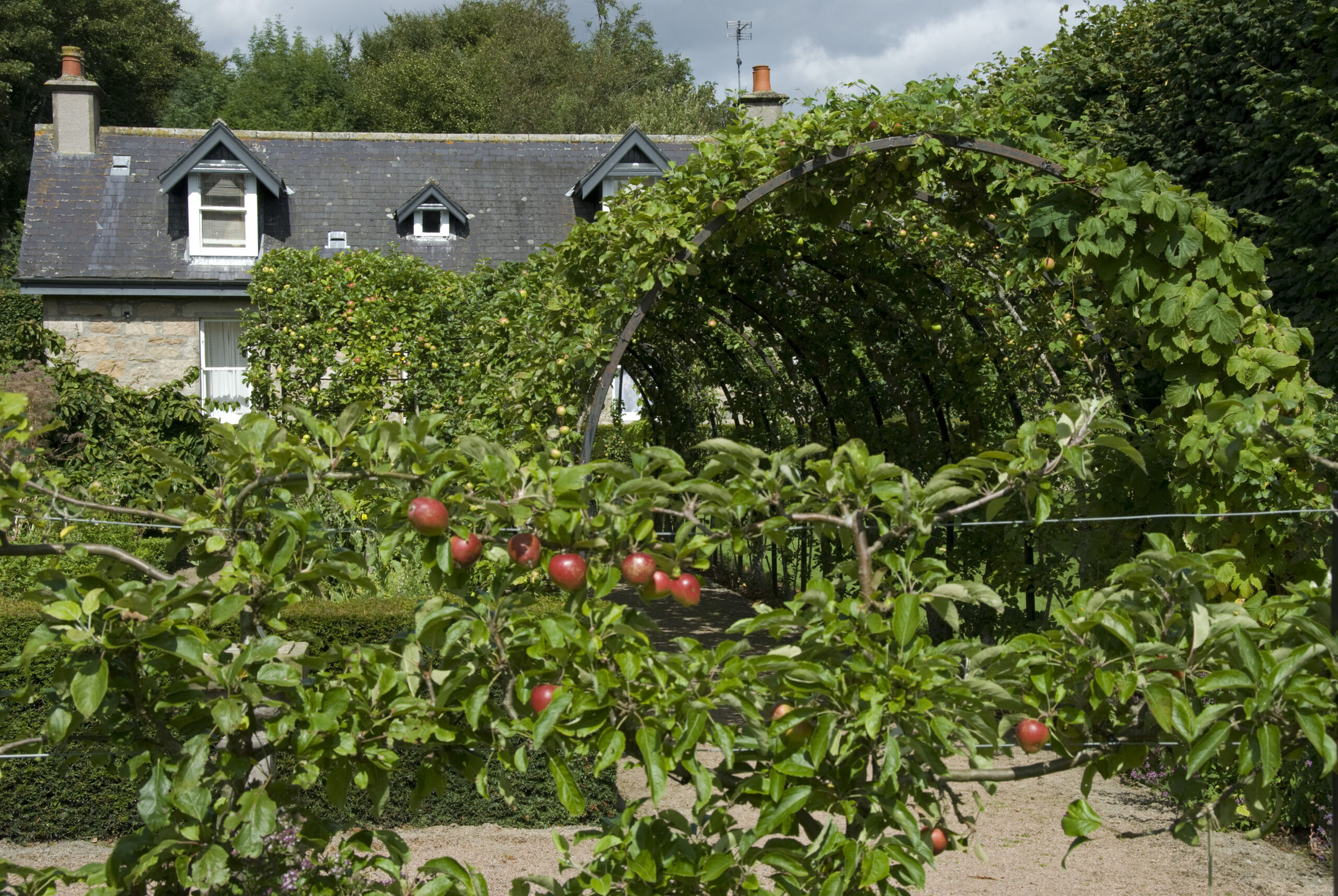
Rare apples dating back to the Romans are still growing in the Scottish Borders
Gardeners have uncovered a rare apple variety dating back to the Romans which is still growing in the Scottish Borders.
The discovery was made by National Trust for Scotland experts as they catalogued more than 300 different apple varieties across its gardens.
Gardeners are working to restore Scottish orchards and keep alive the heritage gardening skills needed to care for them.
At Priorwood Garden, in the Scottish Borders, a rare variety called Court Pendu Plat, first introduced to Britain by the Romans, is still growing.

Priorwood Garden, Melrose. Credit: National Trust for Scotland
Other varieties flourishing across the charity’s orchards were developed by the Elizabethans in the 16th century or the Victorians in the 19th century.
Gardeners of both eras were notably inventive when it came to growing new fruit varieties.
The creativity of these gardeners also extended to the names of the apples they cultivated, with the Trust’s collections featuring varieties such as Reinette Grise, Dog’s Snout, Catshead, Peasgood Nonsuch, Ribston Pippin, Court of Wick, Keswick Codlin, Stirling Castle and Warner’s King.
Colin Wren, the NTS gardens and designed landscapes manager for Edinburgh, explained how important these varieties could be as fruit production is impacted by climate change.

An apple store where the varieties are kept. Credit: National Trust for Scotland/Colin Wren
‘With fruit production likely to be impacted by climate change, among other challenges, we believe it is vital for future growers to have access to varieties that have survived and evolved over hundreds of years, rather than relying on the handful of commercial varieties that currently dominate supermarket shelves,’ he said.
‘Our charity is investing in a wide variety of activity to conserve Scotland’s heritage varieties, including grafting apples from historic apples to preserve them, DNA testing to establish the names of some of the older varieties that have proved difficult to identify from fruits, and replanting historic Scottish varieties, all to make sure that we can share the joy of our apple collections, with all their glorious colours, tastes and histories, with future generations, along with our horticultural expertise, all in support of our vision of nature, beauty and heritage for everyone.’

Credit: National Trust for Scotland/Colin Wren
Further north, Chris Wardle from NTS said: ‘Cultivation methods for apples and other fruit trees haven’t changed much for centuries, with trees being grown freestanding or against walls since Roman times.
‘This process of growing trees for fruit in different locations and microclimates has been utilised almost everywhere – to manipulate the flowering times and growth habits of trees to provide fruit at different times of year for houses, estates, abbeys, monasteries and others.
‘However, climate change is a major factor in what happens to fruit production in the future.
‘Major production regions of the world rely heavily on water and chemicals to feed, grow and protect crops in the commercial sense, but many of these methods are outdated and may need to change for reasons of protecting the environment.
‘For example, regions may ban certain chemicals or have to protect water supplies as they dwindle or are affected by seasonal droughts. In addition, temperatures may fluctuate, and pollinators become scarcer.

Pitmedden Garden. Credit: National Trust for Scotland
‘Therefore, the Trust’s work of managing a heritage collection may have immense significance for the future.
‘Many of our varieties have survived hundreds or years and have gone through changing weather patterns and climate shifts.
‘It’s possible that some of them have qualities that could turn out to be important for reasons of drought tolerance, disease resistance, flavour profiles, storage capacity or longevity of storage – we just don’t know.
‘By nurturing and enriching the Trust’s heritage collections, we’re providing a living library of plants for the future.’
To celebrate the apples, NTS is hosting events and displays throughout September and October at some of its orchards across Scotland.
For further details of apple celebrations at National Trust for Scotland properties in September-October, visit nts.org.uk.
Read more stories on Scottish Field’s wildlife and conservation pages.
Plus, don’t miss the October issue of Scottish Field magazine.
TAGS

